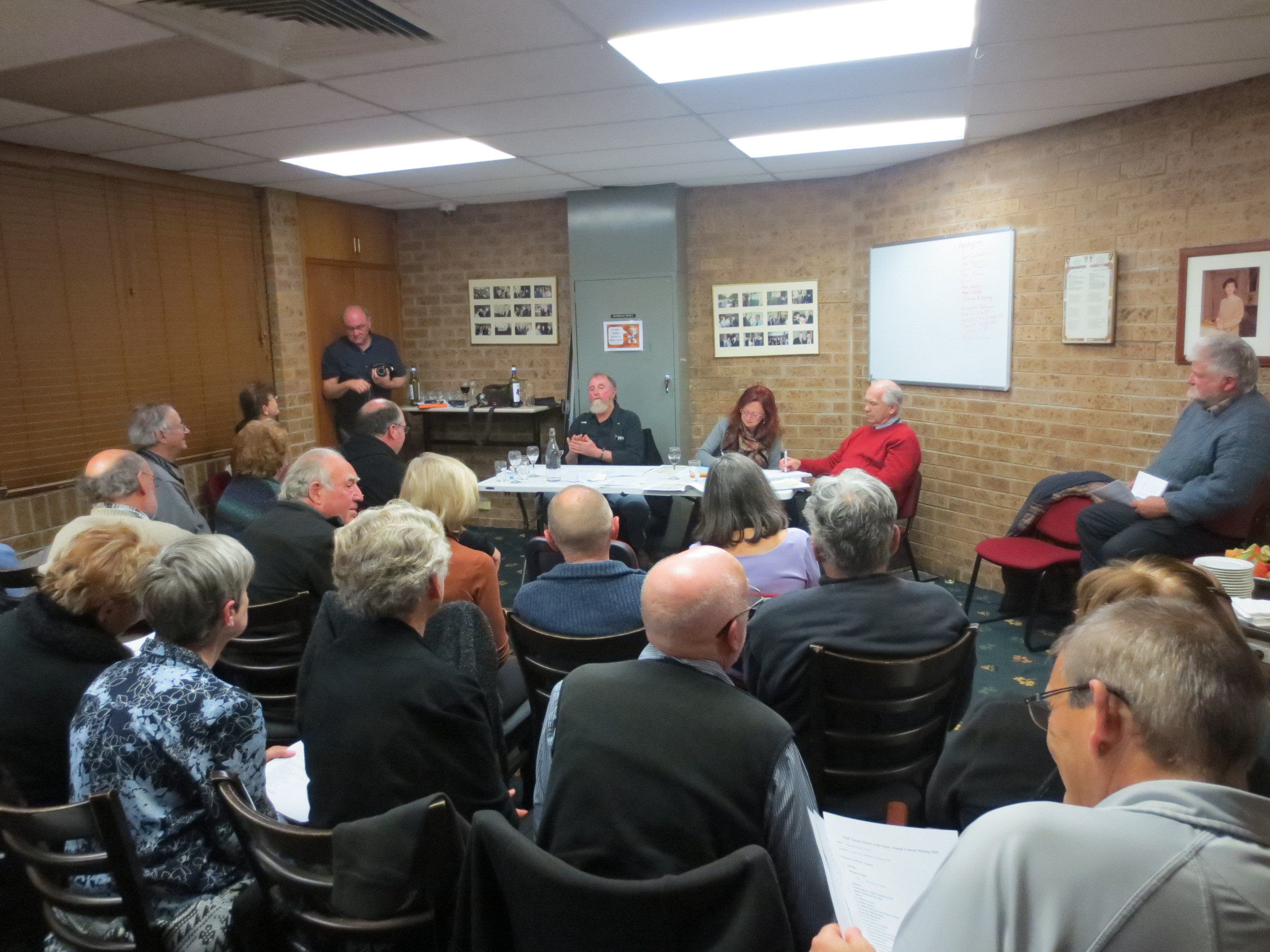
Voluntary association
A voluntary group or union (also sometimes called a voluntary organization, common-interest association,[1]: 266 association, or society) is a group of individuals who enter into an agreement, usually as volunteers, to form a body (or organization) to accomplish a purpose.[2] Common examples include trade associations, trade unions, learned societies, professional associations, and environmental groups.
All such associations reflect freedom of association in ultimate terms (members may choose whether to join or leave), although membership is not necessarily voluntary in the sense that one's employment may effectively require it via occupational closure. For example, in order for particular associations to function effectively, they might need to be mandatory or at least strongly encouraged, as is true of trade unions. Because of this, some people prefer the term common-interest association to describe groups which form out of a common interest, although this term is not widely used or understood.[1]
Voluntary associations may be incorporated or unincorporated; for example, in the US, unions gained additional powers by incorporating.[3] In the UK, the terms voluntary association or voluntary organisation cover every type of group from a small local residents' association to large associations (often registered charities) with multimillion-pound turnover that run large-scale business operations (often providing some kind of public service as subcontractors to government departments or local authorities).[4][5]
Voluntary association is also used to refer to political reforms, especially in the context of urbanization, granting individuals greater freedoms to associate in civil society as they wished, or not at all.
Differences by jurisdictions[edit]
In many jurisdictions no formalities are necessary to start an association. In some jurisdictions, there is a minimum for the number of persons starting an association.
Some jurisdictions require that the association register with the police or other official body to inform the public of the association's existence. This could be a tool of political control or intimidation, and also a way of protecting the economy from fraud.
In many such jurisdictions, only a registered association (an incorporated body) is a juristic person whose members are not responsible for the financial acts of the association. Any group of persons may, of course, work as an informal association, but in such cases, each person making a transaction in the name of the association takes responsibility for that transaction, just as if it were that individual's personal transaction.[6]
There are many countries where the formation of truly independent voluntary associations is effectively proscribed by law or where they are theoretically legally permitted, but in practice are persecuted; for example, where membership brings unwelcome attention from police or other state agencies.
Common law[edit]
Australia[edit]
In most states and territories in Australia, a similar set of laws allows not-for-profit associations to become legal entities with a limit to the liability of their members. An example of such a law, the Associations Incorporation Act 1985 that is in force in South Australia, allows for the creation of a legal entity able to buy and sell land and in general, enter into legally binding contracts.[20] Many clubs and societies begin life as an unincorporated body and seek to attain incorporated status to protect its members from legal liability and in many cases to seek government financial assistance only available to an incorporated body. Clubs and societies wishing to incorporate must meet the provisions of the relevant state act and lodge their constitution with the corresponding state government authority.[21]
Israel[edit]
In Israel, many non-profit organizations (NPOs) and non-governmental organizations (NGOs) are established as registered nonprofit associations (Hebrew amutah, plural amutot) (some are established as public benefit companies (Hebrew Chevrah LeTo’elet Hatzibur) not to be confused with public benefit corporations). Amutot are regulated by the Associations Law, 1980. An amutah is a body corporate, though not a company. The amutah is successor to the Ottoman Association which predated the State of Israel, and was established by the now-superseded 1909 Ottoman Law on Associations, based on the French law of 1901. An amutah must register with the Rasham Ha’amutot ('Registrar of Amutot'), under the purview of the Rashut Hata’agidim ('Corporations Authority') of the Ministry of Justice.